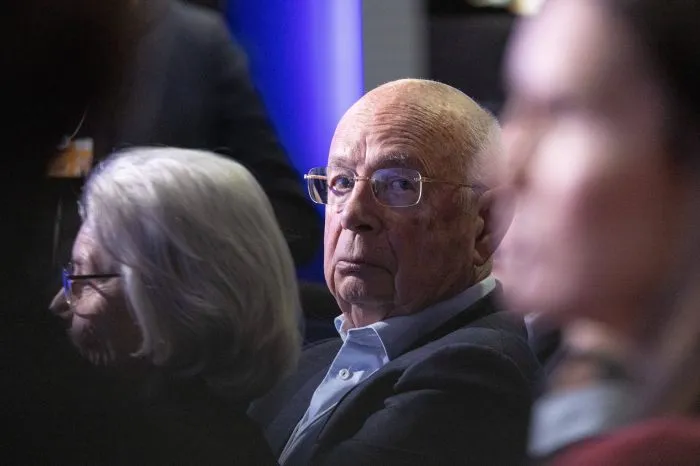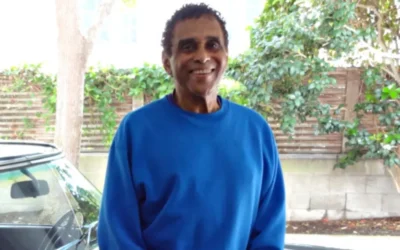World Economic Forum Under Fire: Klaus Schwab Faces Misconduct Allegations
The World Economic Forum (WEF) has long been positioned as a titan of global economic discussion, a gathering place where business leaders, politicians, and academics commune to tackle the world’s most pressing issues. However, the recent probe into its founder Klaus Schwab has thrown a shadow over the organization, revealing allegations of unauthorized spending, inappropriate behavior, and even claims of manipulating data to discredit Brexit.
Unauthorized Spending: A Breakdown
The investigation’s findings suggest that Schwab, over the past several years, engaged in a pattern of unauthorized expenditures that raises several ethical questions as well as potential legal ramifications. Reports indicate that these funds were allocated towards personal projects and expenses that do not align with WEF’s stated mission of promoting global economic cooperation.
While the specific figures have not been publicly disclosed, insiders report that the amounts involved could reach into the millions, prompting growing concerns within the community. These allegations are particularly alarming given the WEF’s reliance on public trust and sponsorship from global corporations to fund its initiatives.
Inappropriate Behavior: Allegations Surface
Alongside financial misconduct allegations, Schwab has also been accused of inappropriate behavior towards staff and attendees at various WEF events. Several anonymous sources have come forward claiming that the organizational culture under Schwab has fostered an environment that tolerates misconduct, creating a toxic workplace atmosphere that has led to employee dissatisfaction and fear of retaliation for speaking out.
One former employee described the atmosphere as “intimidating,” stating, “It was hard to voice concerns. You felt like you could be blacklisted for speaking out.” As investigators look deeper into the WEF’s organizational practices, these testimonies may play a critical role in whether any systematic issues are uncovered.
Klaus Schwab’s Rebuttal: Standing Firm Against Misconduct Claims
Klaus Schwab has categorically denied all the allegations of misconduct presented against him. He issued a statement asserting that the investigation lacks substantial evidence and is founded on misunderstandings about WEF’s operations. Schwab maintains that any expenditures labeled as unauthorized were, in fact, necessary for the organization’s continued advancement and alignment with its goals.
“The World Economic Forum has always acted in the best interest of public and corporate stakeholders,” Schwab stated. “This probe seems to be a calculated attempt to undermine the credibility of an organization that has consistently sought to address global challenges.”
Evidence of Rigged Data: A Closer Look
Perhaps the most controversial claim emerging from the investigation concerns allegations that the WEF manipulated data to portray Brexit as a failure. Critics argue that the WEF used selective statistics that painted a bleak picture of the post-Brexit economic landscape, which contributed to a narrative toppling the United Kingdom’s decision to leave the European Union.
The WEF’s reports suggested negative impacts on trade, economic growth, and investment levels immediately following Brexit, leading many to question not only the integrity of the data presented but also the organization’s motives. Proponents of Brexit have long accused the WEF and other international entities of bias against the decision, claiming that expert recommendations were largely pro-EU.
Several economists have come forward expressing their concern about the dangers of publishing potentially biased data in an organization that wields considerable influence on global policy. “Data should be independent and free from political motivations,” remarked Dr. Sarah Thompson, an economist specializing in international trade. “When organizations like the WEF release information tied to such a sensitive issue, there needs to be transparency.”
Implications for WEF’s Future
The ramifications of these allegations are already manifesting in various ways. Trust in the WEF as a neutral platform may be severely hampered. Disgruntled stakeholders have begun re-evaluating their partnerships with the organization, and some have spoken out about reconsidering their sponsorship as the reputational damage deepens.
Moreover, economic forums around the world will likely feel the trickle-down effects of this scandal. As public skepticism grows toward elite gatherings, concerns arise over transparency, accountability, and ethical governance, especially in organizations wielding such considerable influence.
The Bigger Picture: Accountability in Global Institutions
This incident illustrates a broader issue regarding accountability within powerful global institutions. With more and more citizens demanding transparency, the days of opaque practices and unchecked conduct may be numbered. The WEF will have to confront not just its internal policies but also how it interacts with the global populace at large.
As calls for reform grow louder, experts suggest that the outcome of this investigation could serve as a case study for other organizations. They might need to assess their structures to ensure ethical standards are upheld and that they are demonstrating a commitment to public interest rather than self-serving agendas.
Conclusion: A Watershed Moment for Klaus Schwab and the WEF
This is undoubtedly a watershed moment for both Klaus Schwab and the World Economic Forum. As the investigation unfolds, it will provide an opportunity to address longstanding issues surrounding the power dynamics within such influential organizations. With society increasingly scrutinizing the actions and influence of global elites, the adherence to ethical conduct and transparency is no longer optional—it is essential.
Moving forward, whether Schwab and the WEF can weather this storm remains to be seen, but what is clear is that trust is the currency of credibility, and that once lost, is incredibly hard to regain. As stakeholders await the investigation’s formal conclusions, the world watches closely, recognizing that the outcome may set a precedent for how we expect our global institutions to operate in the future.







